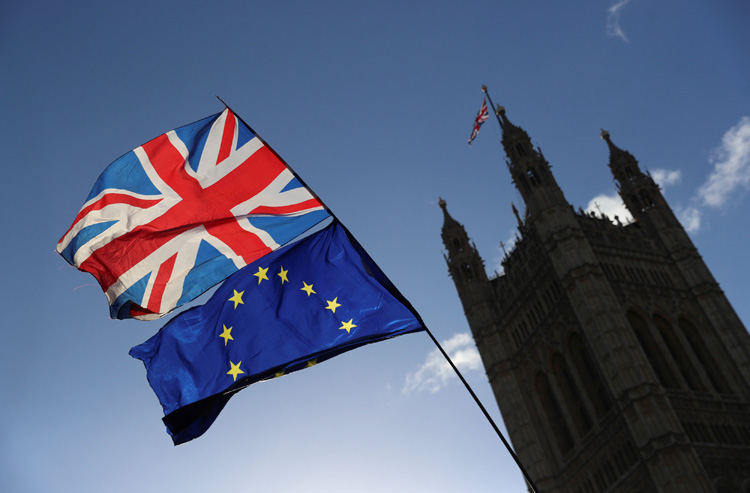British MPs reject Brexit deal for second time
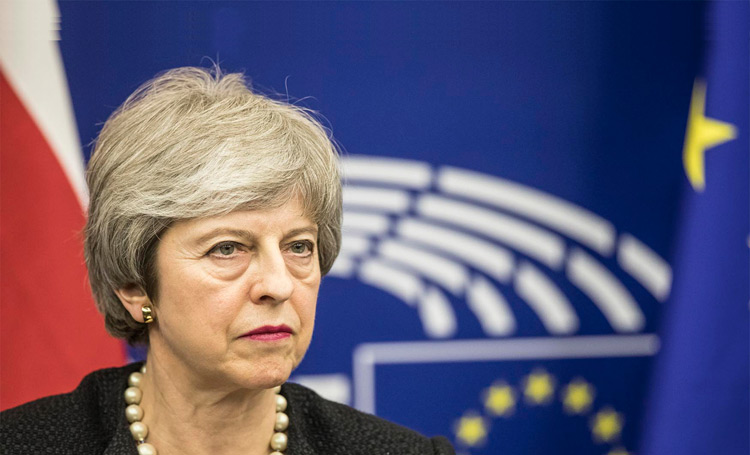
Britain's Prime Minister Theresa May
LONDON: Britain’s parliament rejected Prime Minister Theresa May’s deal to quit the European Union for a second time on Tuesday, deepening the country’s worst political crisis for generations, 17 days before the planned departure date.
Lawmakers voted against May’s amended Brexit deal by 391 to 242 as her last-minute talks with EU chiefs on Monday to assuage her critics’ concerns ultimately proved fruitless.
The vote puts the world’s fifth largest economy in uncharted territory with no obvious way forward: exiting the EU without a deal, delaying the March 29 divorce date, a snap election, or even another referendum are all now possible.
May might even try a third time to get parliamentary support in the hope that hardline eurosceptic lawmakers in her Conservative Party, the most vocal critics of her withdrawal treaty, might change their minds if it becomes more likely that Britain might stay in the EU after all.
While she lost, the margin of defeat was smaller than the record 230-vote loss her deal suffered in January.
“If this vote is not passed tonight, if this deal is not passed, then Brexit could be lost,” a hoarse-voiced May told lawmakers before her deal was defeated.
British and EU flags flutter outside the Houses of Parliament in London, Britain, on Monday. Simon Dawson/Reuters
DUP Eurosceptic Tories urge MPs to reject Brexit deal
“We have secured legal changes,” May said in a late night news conference in Strasbourg beside Juncker, 17 days before the United Kingdom is due to leave the EU on March 29.
After two-and-a-half years of haggling since the 2016 Brexit referendum, Juncker cautioned that this was the last chance for Britain.
“It is this deal or Brexit might not happen at all,” he said. Sterling rose 1.5 per cent against the dollar and to a near two-year high against the euro.
If lawmakers vote down May’s deal, she has promised a vote on Wednesday on whether to leave without a deal and, if they reject that, then a vote on whether to ask for a limited delay to Brexit.
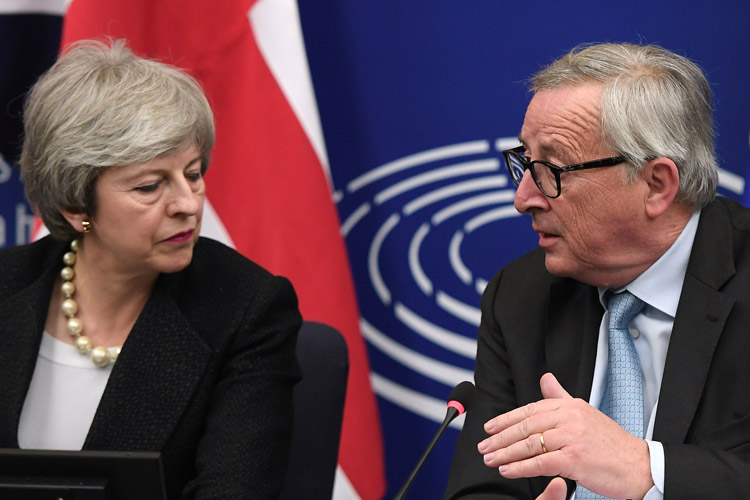
European Commission President Jean-Claude Juncker (R) and British Prime Minister Theresa May
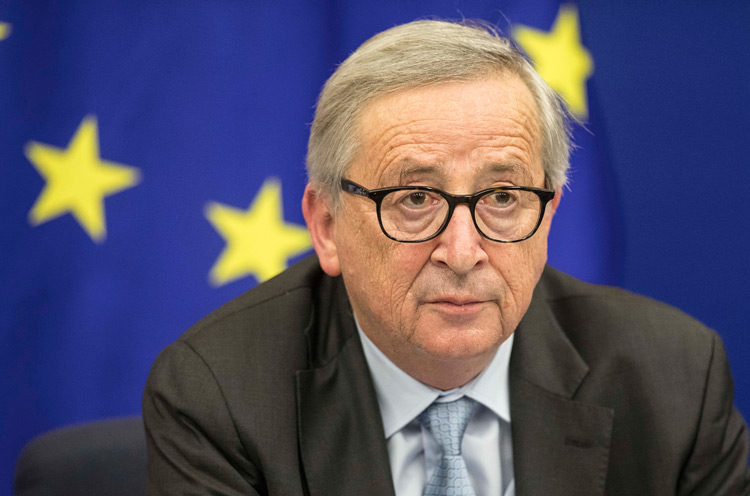
European Commission President Jean-Claude Juncker
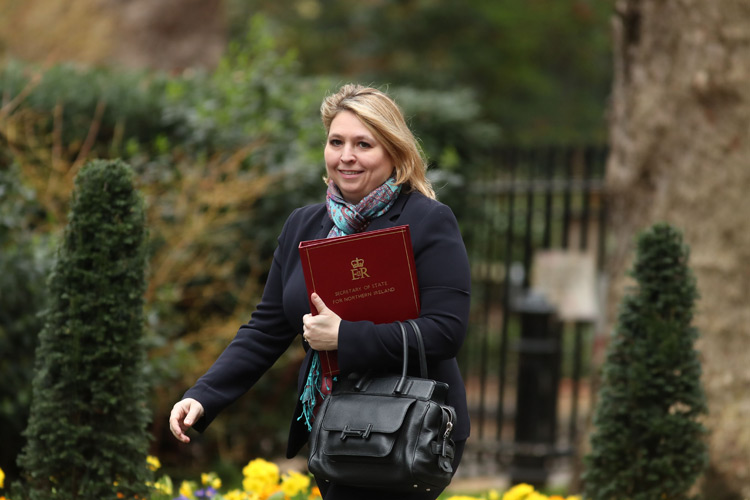
Britain's Northern Ireland Secretary Karen Bradley
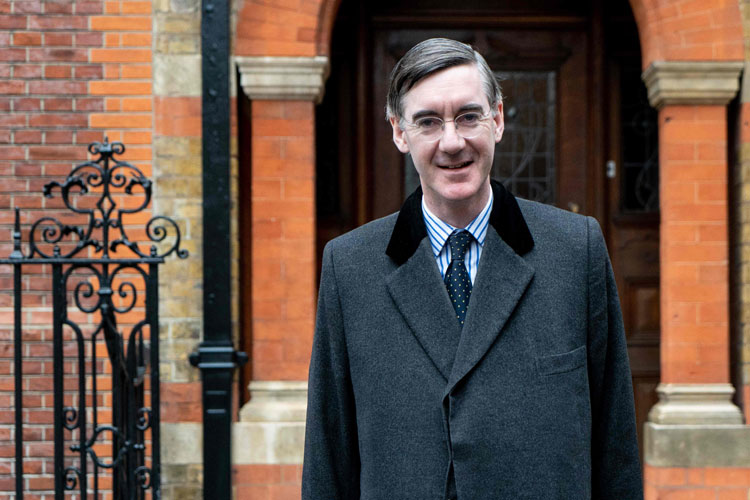
British conservative MP Jacob Rees-Mogg
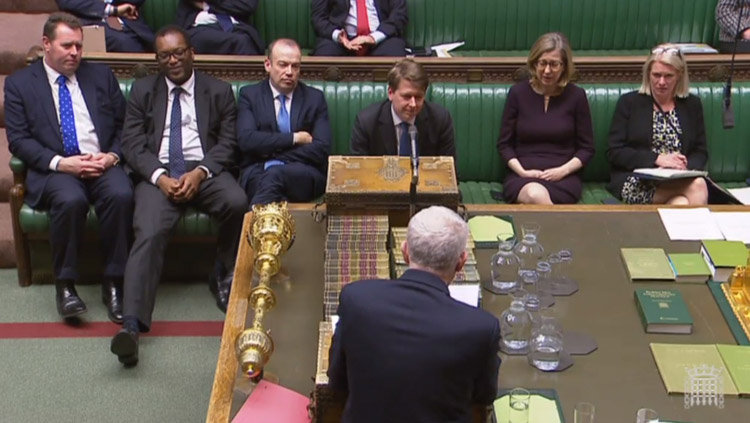
A video grab from footage broadcast by the UK Parliament's Parliamentary Recording Unit (PRU) shows members gathered in the House of Commons in London.
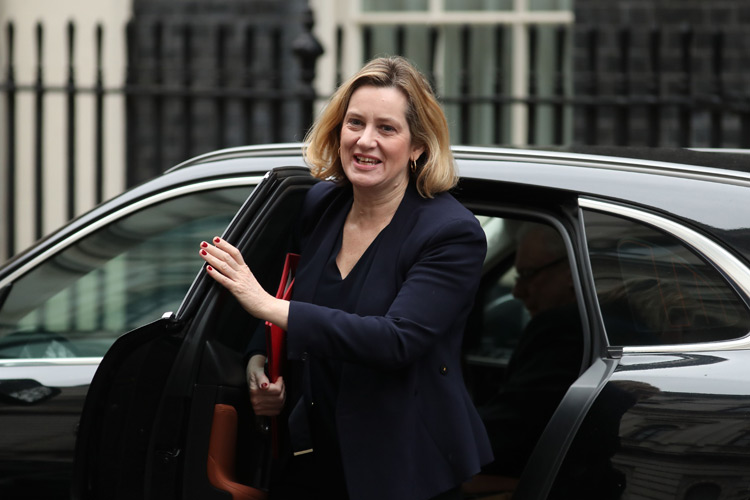
Britain's Work and Pensions Secretary Amber Rudd
The United Kingdom’s labyrinthine crisis over EU membership is approaching its finale with an array of possible outcomes, including a delay, a last-minute deal, a no-deal Brexit, a snap election or even another referendum.
Brexit will pitch the world’s fifth largest economy into the unknown and many fear it will divide the West as it grapples with both the unconventional US presidency of Donald Trump and growing assertiveness from Russia and China.
BREXIT VOTE
Supporters of Brexit say while the divorce might bring some short-term instability, in the longer term it will allow the United Kingdom to thrive and also enable deeper EU integration without such a powerful reluctant member.
“We have secured legal changes.
Brexit-supporting lawmakers in May’s party had accused her of botching the negotiations with Brussels and surrendering on the detail of the backstop which sets out what happens to the Irish border if the sides fail to find a solution.
Many Brexiteers worried that the backstop, aimed at avoiding controls on the border between the British province of Northern Ireland and EU-member Ireland, could trap the United Kingdom in the EU’s orbit indefinitely.
May announced three documents — a joint instrument, a joint statement and a unilateral declaration — which she said were aimed at addressing the Irish backstop, the most contentious part of the divorce deal she agreed with the EU in November.
The immediate reaction was cautious from Brexit-supporting lawmakers and from the Northern Irish Democratic Unionist Party (DUP) which props up her minority government.
“It is this deal or Brexit might not happen at all.
“We will be taking appropriate advice, scrutinising the text line by line and forming our own judgement,” a DUP spokesman said.
The motion put forward by the government said the joint instrument “reduces the risk” that the United Kingdom would be trapped in the backstop.
If the backstop comes into force and talks on the future relationship break down with no prospect of an agreement, May said the unilateral declaration she announced would make clear there was nothing to stop London from moving to leave the backstop.
Former Attorney General Dominic Grieve, an opponent of Brexit, said the changes to May’s deal did not make a material difference.
Reuters
